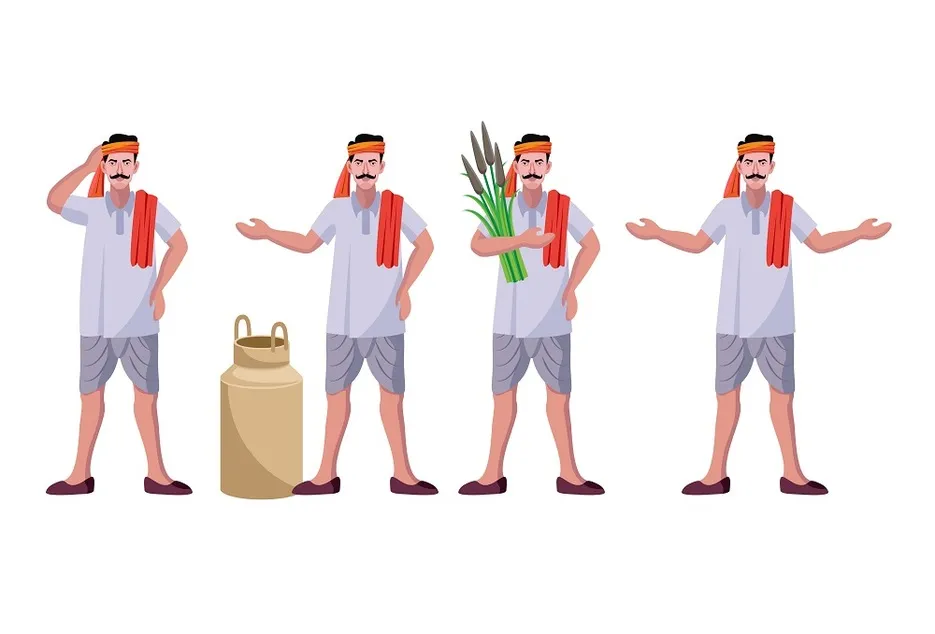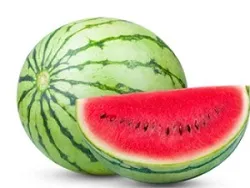 ପଛକୁ
ପଛକୁ

FPO stands for Farmers Producers Organization. A producer company is basically a corporate body registered as a Producer Company under the Companies Act, 1956 (As amended in 2002). Its main activities consist of production, harvesting, processing, procurement, grading, pooling, handling, marketing, selling, export of primary produce of the Members, or import of goods or services for their benefit. It also includes promoting mutual assistance, welfare measures, financial services, and insurance for producers or their primary produce.
What is a Producer Organization?
What is a Producer Organization?

- A Producer Organization (PO) is a legal entity formed by primary producers that are farmers, milk producers, fishers, weavers, rural artisans, craftsmen, etc. PO is a generic name for an organization of producers of any produce, e.g., agricultural, non-farm products, artisan products, etc. 2. A Producer Organization can be a producer company, a cooperative society, or any other legal form which provides for sharing of profits or benefits among the members. In some forms of producer companies, institutions of primary producers can also become members of PO. These are the hybrids of cooperatives and private companies. 3. The participation, organization, and membership pattern of these companies are like those of cooperatives. But their day-to-day functioning and business models resemble those of the professionally run private companies. 4. The Company’s Act was amended by incorporating Section-IX A in it to allow the creation and registration of FPOs under it.


Concept of FPO
Concept of FPO
- The concept behind Farmer Producer Organizations is that farmers, who are the producers of agricultural products, can form groups and register themselves under the Indian Companies Act. To facilitate this process, the Small Farmers’ Agribusiness Consortium (SFAC) was mandated by the Department of Agriculture and Cooperation, Ministry of Agriculture, Govt. of India, to support the State Governments in the formation of Farmer Producer Organizations (FPOs). The aim is to enhance farmers’ competitiveness and increase their advantage in emerging market opportunities. 2. The FPO’s major operations will include the supply of seed, fertilizer, and machinery, market linkages, training and networking, and financial and technical advice.
Farmers Producers’ Organization – Key Points
Farmers Producers’ Organization – Key Points
- Farmers Producers Organizations will be formed and promoted through Cluster-Based Business Organizations (CBBOs) engaged at the State/Cluster level by implementing agencies. 2. FPOs will be promoted under the “One District One Product” cluster to promote specialization and better processing, marketing, branding & export by FPOs. 3. Initially, the minimum number of members in FPO will be 300 in plain areas and 100 in Northeast & hilly areas. 4. There will be a National Project Management Agency (NPMA) at SFAC for providing overall project guidance, data compilation, and maintenance through an integrated portal and Information management and monitoring. 5. States/UTs will be allowed to avail of loans at the prescribed concessional rate of interest under the Agri-Market Infrastructure Fund (AMIF) approved for setting up in NABARD for developing agriculture marketing and allied infrastructure.6. Adequate training and handholding will be provided to FPOs. CBBOs will provide initial training.
What is the Need for an FPO for Farmers?
What is the Need for an FPO for Farmers?
Farmers in India face tremendous hardships which include the following – 1. Small Size of landholdings. 86% of farmers are small and marginal with average land holdings in the country being less than 1.1 hectares. 2. Good quality seeds are out of reach of small and marginal farmers mainly because of exorbitant prices of better seeds. 3. Depletion and exhaustion of soils resulting in low productivity demand good fertilizers, manures, biocides, etc. 4. Lack of proper irrigation facilities. 5. There is less or no accessibility to large-scale mechanization of agriculture. 6. Challenges in marketing their products due to lack of economic strength. In the absence of sound agricultural marketing facilities, the farmers must depend upon local traders and middlemen for selling their farm produce which is disposed of at an extremely low price. 7. Scarcity of capital for agricultural activity forces farmers to borrow money for stimulating production. FPOs help in the collectivization of such small, marginal, and landless farmers to give them the collective strength to deal with such issues.
Aim of Farmer Producers Organization
Aim of Farmer Producers Organization
- The main aim of FPO is to ensure better income for the producers through an organization of their own. 2. Small producers do not have the volume individually (both inputs and produce) to get the benefit of economies of scale.3. Besides, in agricultural marketing, there is a long chain of intermediaries who very often work non-transparently leading to the situation where the producer receives only a small part of the value that the ultimate consumer pays. This will be eliminated. 4. Through aggregation, the primary producers can avail themselves of the benefit of economies of scale. 5. Farmer’s Producers will also have better bargaining power in the form of the bulk buyers of produce and bulk suppliers of inputs.
Government’s Support to Farmers Producers Organization
Government’s Support to Farmers Producers Organization
The government has launched a new dedicated Central Sector Scheme titled “Formation and Promotion of Farmer Producer Organizations (FPOs)” with a clear strategy and committed resources to form and promote 10,000 new FPOs to ensure economies of scale for farmers over the next five years. Support for each FPO is continued for 5 years from its year of inception. Initially, there will be three implementing Agencies to form and promote FPOs, namely 1. Small Farmers Agri-business Consortium (SFAC) 2. National Cooperative Development Corporation (NCDC) 3. National Bank for Agriculture and Rural Development (NABARD). 4. States may also, if so desired, nominate their Implementing Agency in consultation with DAC&FW. The Department of Agriculture, Cooperation & Farmers Welfare (DAC&FW) will allocate Cluster/States to Implementing Agencies which in turn will form the Cluster-Based Business Organization in the States.
Benefits to farmers through FPOs
Benefits to farmers through FPOs
Declining average land-holding size
Declining average land-holding size
The small and marginal farmers’ share increased from 70% in 1980 to 86% now. The FPOs can engage farmers in addressing productivity issues, collective farming, and emanating from small farm sizes. It may also result in additional employment generation because of the increased intensity of farming.
Negotiating with corporations
Negotiating with corporations
The FPOs can benefit farmers to compete with large corporate enterprises in bargaining. It allows farm members to negotiate as a group and help small farmers in both output and input markets.


Economics of aggregation
Economics of aggregation
The FPOs can provide quality and low-cost inputs to member farmers such as the purchase of machinery, loans for crops, input Agri-inputs (pesticides, fertilizers, etc.), and direct marketing after agricultural produce procurement. It will enable members to save time, distress sales, transaction costs, price fluctuations, quality maintenance, transportation, etc.
Thank you for reading this article, we hope you clicked on the ♡ icon to like the article and also do share it with your friends and family now!








